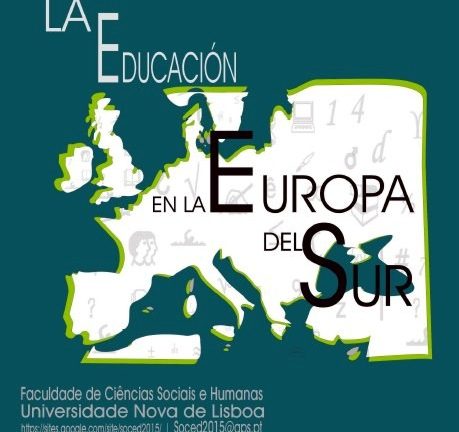
Presentation
Portugal and Spain present remarkable peculiarities in the construction of its Welfare State, which is reflected in the architecture of their educational systems, and processes of schooling. However, the remarkable progress das last decades, the process of modernization and democratization is still incomplete, folded by strong asymmetries (regional, social, generational…) and by a weak and complex composition between old problems, mitigated or metamorfoseados, and educational challenges of contemporary world is uncertain and contingent.
The reconfigurations of the welfare State, the result of the current crisis, have been put in fabric of judgment directly to the educational policies, the devices of social-educational involvement and the performance of the atores of education. The education world is today traversed by several dilemmas hard to solve, perhaps ambivalent, generators of tension. On the one hand, the governance of education through goals and standards international. On the other, the decentralization of the educational policies and the attribution of more autonomy to the territories.
The model of solidarity civic is anchored in the grammar of the equality collides today with other modalities of (re)education, in particular those that emanate from a simple application of commercial logic (which makes much of the competition, the competitiveness and the market), an industrial logic (differential efficiency-based numbers, the obligation of presentation of measurable outcomes, evaluation and monitoring, the rankings) and a logical humanist individualized (the individual in its singularity, your identity, subjectivity, biography, and projects). How to promote excellence and at the same time protect thelosers of the race meritocratic risk of exclusion from school and social? How to make an education for all without question the respect for the uniqueness, the individuality and the difference of each one?
The school, responsible for school problems, personal, family, social, and cognitive children and young people are transported to within the walls of its ancient sanctuary, it seems to not be able to answer based on the prescription of traditional models, generating a malaise or a crisis of the profession of teacher. In another sense, the transitions from school to work live in uncertain times, with an impact on the aspirations and in the preparation of the projects of life. The profound changes in the labour market and employment have deepened the uncertainties and the risks, and have generated an emphasis on education throughout life as the (single) promise policy able to cope with the contingencies. What place and what conditions for the diversity of frameworks of education (informal, non formal) exist today in the two countries, in the sense of the expand – reduce– the credentials that individuals can provide to be recognized in terms of political and social, beyond themonopoly of the school diploma?
Portugal and Spain are two countries aged, a fact that imposes constraints and challenges for the future of education and of solidarity between generations. The ageing of the population will imply certainly a fresh look, both on the political education of adults and older people as well as towards the school policies, children and youth. In addition, the relative unpredictability of the migratory movements – stimulated by the economic crisis, but also by a global education market – may also influence educational settings present and future of the two countries.
What instruments and theoretical and methodological tools are developed, sociologists from the Portuguese and Spanish education in the sense of giving an account of these constraints and the challenges in education? What are the objects of research is privileged and approaches valued? In this conference, the organizations iberian sociology of education join periodic meetings of face-to-deepen the knowledge and debate in relation with the educational realities of the European South, trying to capture the state of knowledge, in a comparative perspective.
We invite all interested parties to submit proposals of communication in any of the following thematic lines:
- Educational policies in the Europe of the South
- Schooling outcomes and social inequalities
- Education, childhood and youth
- Education, training and work
- Education throughout the life and the knowledge society
- Organizations, citizenship and leadership
- A re-composition of the work and of the teaching profession
- Schools, families and communities
- The school institution in the global environment and digital
.
